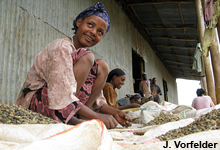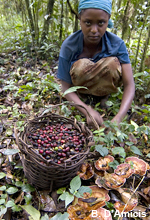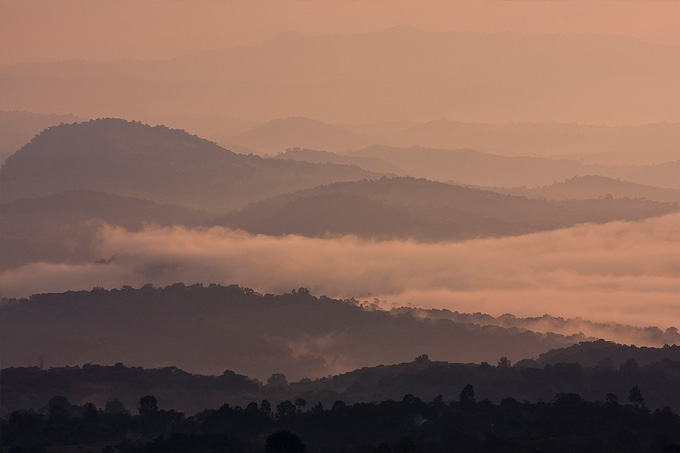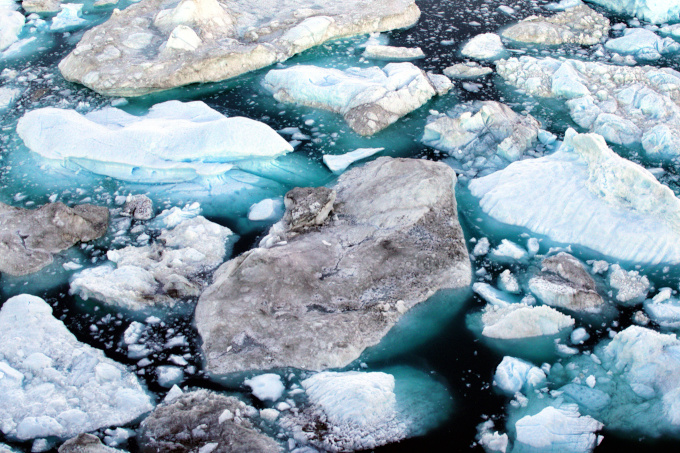Climate-friendly micro credits
A sustainable development for the community
Micro credits are small loans given to individuals, often poor women, who do not qualify for a conventional bank loan. These loans are meant to be used for income-generating activities that will improve the borrowers living standards.
According to the UN, 98 percent of all micro credits are paid back. These immediate measures for self-help have been utilized by 500 million people worldwide in the last 30 years. The concept of micro credits has been very successful in Ethiopia and will be implemented in Kafa Biosphere Reserve as part of this project.
Past experience suggests that the micro credits given to borrowers should vary between 50 EUR and 1,000 EUR, going to an absolute maximum of 10,000 EUR. The period of credit validity should be limited to 6-18 months. If a first credit isn’t settled, no more will be issued. In order to qualify for a micro credit, the borrower must present a coherent concept, with a business plan which fulfils general predetermined criterion for resource preservation. Preferential support will be given to women, in order to strengthen their role within society, non landowning young people and subsistence farmers who practice resource-preserving agriculture.
Within the project micro credits will be given for activities which not only increase the living standards of the borrower but also contribute to forest or climate conservation such as:
- Credits for seed stores, seedlings or equipment for tree-nurseries with indigenous or fast-growing tree species (sale of wood or seedlings, with simultaneous reduction of burdens on the forest)
- Credits for seeds or equipment for agriculture (self-sufficiency and sale of agricultural produce, coupled with reduced burden on the forest through less gathering of non-wood products)
- Credits for seeds or equipment for alternative forage crop cultivation (improvement of animal husbandry and thereby income from it through simultaneous reduction of unrestricted grazing)
- Credits for setup of regional-product marketing with the Kafa Biosphere Reserve logo (spices, honey, etc) (raising living-standards through earnings, and generation of value-consciousness for regional products)
- Credits for activities within the tourism sector (accommodation such as bed and breakfasts, taverns, sale of handicraft, etc) Credits for small (solar-powered) engines (Improvement of living/producing conditions)
- Credits for irrigation plans to aid subsistence agriculture (improvement of agricultural production and thereby income from sale of produce)
- Credits for further education or equipment for medicinal crop plantation (income from the sale of medical drugs, with simultaneous reduction of burden on the forest due to less gathering in it)
- Credits for micro enterprises, such as the set up of kiosks (improving living standards through income)
- Credits for communications devices such as mobile phones or computers/laptops (income from renting)
project overview
The remaining afromontane cloud forests in the south-west of Ethiopia are an exeptional natural heritage site and home to numerous animal and plant species, some of them endemic. The region is considered to be the birthplace of Arabice coffee, one of the finest coffees in the world. more →
related topics
Climate change and biodiversity loss are the most pressing challenges to humanity. Finally, people start to realize they are both sides of the same coin. NABU stands with science. We demand and support all efforts to reach a net-zero carbon economy globally. more →




